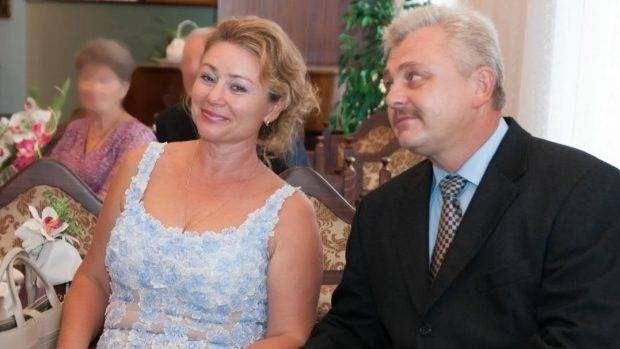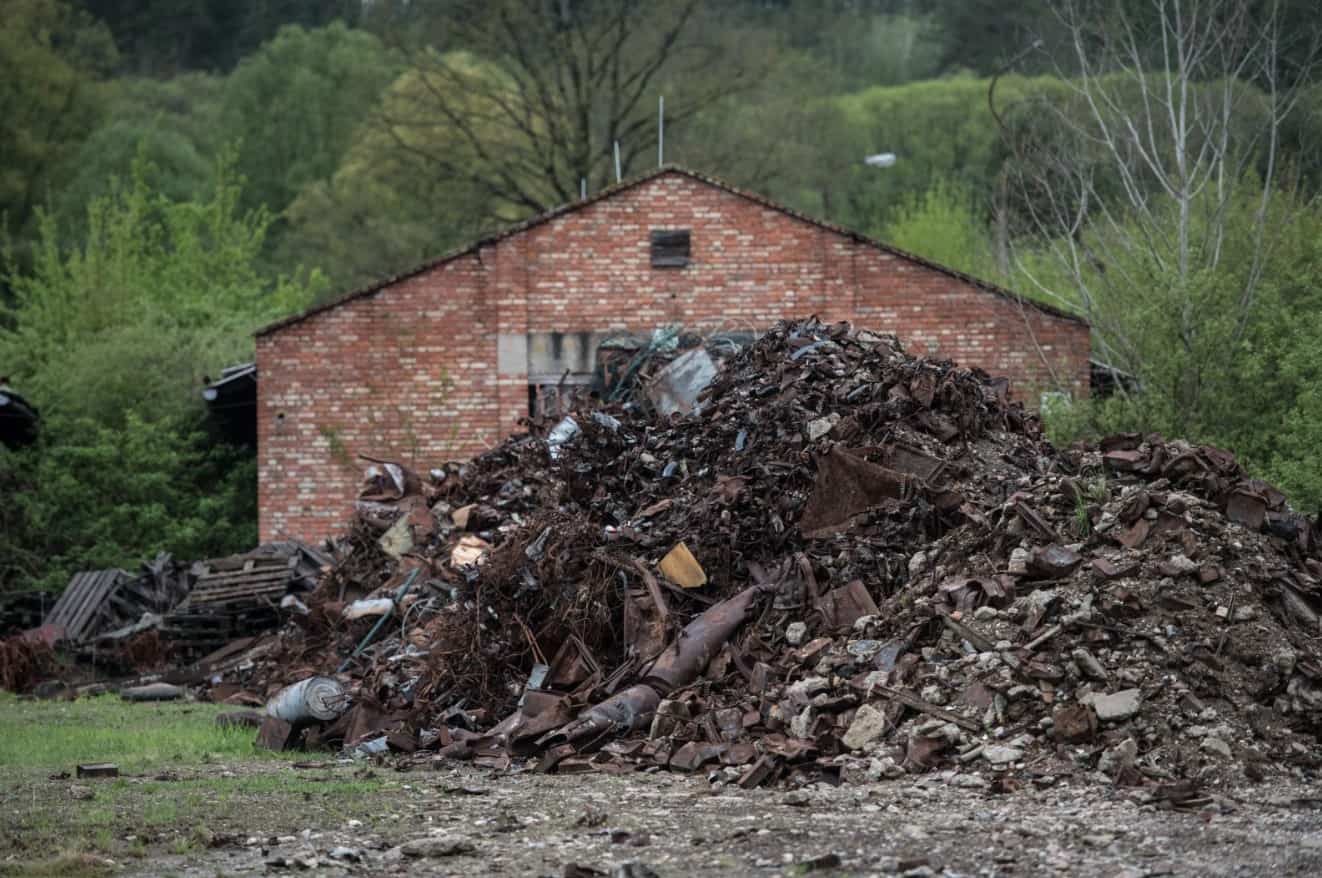
A family of Russian immigrants who moved to the Czech Republic in the early 2000s was exposed as collaborating with Russian special services. They were involved in a number of explosions and poisonings.
The Insider reported on this.
Nikolai and Elena Šapošnikov immigrated to Czechoslovakia in the early 1990s. Shaposhnikov arrived in the country as a “political refugee” and, after changing several camps, was granted the status of a political migrant in August 1991. A few months later, he was joined by his wife, Elena, and their two young children.
After the Czech Republic separated from Slovakia and became independent, the family of self-styled dissidents immediately applied for citizenship. After several rejections, they eventually received Czech citizenship: Nikolai in 1999 and Elena (after the apparent intervention of Stanislav Gross, then Minister of the Interior, who was notorious for his corruption) in 2004. An immigration officer working on Elena’s case even attached a handwritten note to her file: “A red line running through this entire application has been the various people constantly trying to intervene to achieve a positive outcome.”
In the early 2000s, Nikolai Šapošnikov got a job as a manager at the arms trading company Imex. The owner of this business was Petr Bernatik, a former secret agent of the ŠtB, the Czechoslovakian state security service.
Šapošnikov searched for new clients for Imex and advised existing ones. Later, he brought his family members to Imex: by 2014, both of his children were working for the company.
His wife was running her own business importing pig iron from the former Soviet republics. However, as the investigation later revealed, she was fully involved in Imex’s activities. Moreover, she actively directed her husband’s actions in direct coordination with Gen. Andrei Averyanov, 58, the founding commander of Unit 29155.
Despite Nikolai Šapošnikov’s modest income at Imex – about $650 a month – the family lived the lifestyle of millionaires and purchased real estate in the Czech Republic and Greece, which cost far more than their income.
As it was later reported, Elena owned an offshore company of unknown purpose registered in the Marshall Islands and controlled two bank accounts in Switzerland. These bank accounts, as well as unexplained cash infusions into the Šapošnikov’s Czech bank accounts and a cash payment scheme, were most likely the real source of funds to support the family’s lifestyle. Among other things, the Šapošnikov owned Villa Elena.

According to the investigation, the main guests of the villa were not tourists but Russian agents of the 161st Special Purpose Specialist Training Center (military unit 29155).
Russian intelligence officers regularly flew to Thessaloniki as soon as the Šapošnikov family settled in Greece. For example, General Averyanov, the commander of the GRU Unit 29155, flew to Thessaloniki under his cover identity of “Andrey Overyanov” and stayed there for a week, from July 15 to 21, 2013. A year later, he reappeared on his return from Amsterdam on August 25, 2014.
In addition to him, at least four members of the 161st Special Purpose Specialist Training Center flew to Thessaloniki and probably also stayed at Villa Elena between 2012 and 2018.
Some of the visits coincided with the time of this unit’s operations in the region. For example, GRU officer Alexei Kapinos, described by Šapošnikov as a Czech investigator, “a family friend,” flew to Thessaloniki on April 25, 2014, using a diplomatic passport. Just a day before, three of his colleagues from the 161st Center arrived in Bulgaria with cover passports and, according to a joint investigation by The Insider and Bellingcat, poisoned Bulgarian arms dealer Emilian Gebrev.
At the time of the poisoning, Gebrev was considered a supplier of ammunition to the Ukrainian military. Two sources involved in arms procurement in Ukraine at the time told The Insider that immediately afterward, Nikolai Šapošnikov offered Ukrainian government buyers a “reliable replacement” for Gebrev. Ukraine never purchased the products from the supplier proposed by Šapošnikov because of the unsatisfactory quality of his goods.
Czech police investigators discovered that Elena Šapošnikov had been sending important information about upcoming arms deals discovered by her husband during his work at Imex to General Averyanov via email.
In cases where the Main Directorate of the General Staff of the Armed Forces of the Russian Federation (GRU) decided that the supplies were detrimental to Russia’s military interests, the unit of the 161st Special Purpose Specialist Training Center used this information to conduct sabotage operations against these companies, blowing up munitions depots or organizing the poisoning of their executives, such as Gebrev.
On at least three occasions, Šapošnikov, allegedly with the assistance of Imex executive director Petr Bernatik Jr., provided physical access to Imex-owned warehouses to enable GRU officers to install remote-controlled explosives.
In 2013, Elena Šapošnikov, among other things, passed on to Averyanov information about the planned supply of pontoon bridges and KrAZ trucks to Vietnam for the Vietnamese Ministry of Defense. It is unclear why the GRU did not like the deal, but on December 17, shortly after departing the Bulgarian port, the ship turned off its transponder and disappeared without a trace. This event also disrupted future deliveries already planned.
In 2014, the Šapošnikovs organized access for Averyanov for Mishkin and Chepiga (known in Russia as Boshirov and Petrov) to visit their warehouse in Vrbětice with forged passports under the names Ruslan Tabarov and Nikolai Popa, where the shells purchased by Gebrev were stored. On the day of their arrival, a powerful explosion occurred at warehouse No. 12, killing two warehouse employees.

The Šapošnikovs were held as suspects during the investigation of warehouse explosions by the Czech police. They were accused of contacts and cooperation with the special services of the Russian Federation, but they rejected these suspicions and referred to the explosions as “an accident.”
However, journalists from The Insider have discovered new evidence confirming that the Šapošnikov family is working for the Main Directorate of the General Staff of the Armed Forces of the Russian Federation.
Travel and border crossing data indicate that Elena Šapošnikov secretly obtained a Russian passport, a passport from the range of numbers reserved for GRU agents assigned to military unit 29155 (her number differs only in the last two digits).
Elena Šapošnikov used this passport to travel between Greece and Russia at least twice: in December 2015 and in December 2017. She booked her tickets on her Czech passport, so the Greek airline only had information about this document, but she crossed the border with her Russian passport, which eliminated the need to obtain a Russian visa.
It is noteworthy that her first trip to Moscow on her official passport lasted only 2 days: she flew in from Thessaloniki to Moscow on December 3, 2015, and departed on December 5, 2015.
According to The Insider, it was at this point that Vladimir Putin awarded her the title of Hero of Russia. Around this time, other members of the 29155 unit, who participated in the warehouse bombings and the poisoning of Gebrev, also received the award.
Підтримати нас можна через:
Приват: 5169 3351 0164 7408 PayPal - [email protected] Стати нашим патроном за лінком ⬇
Subscribe to our newsletter
or on ours Telegram
Thank you!!
You are subscribed to our newsletter